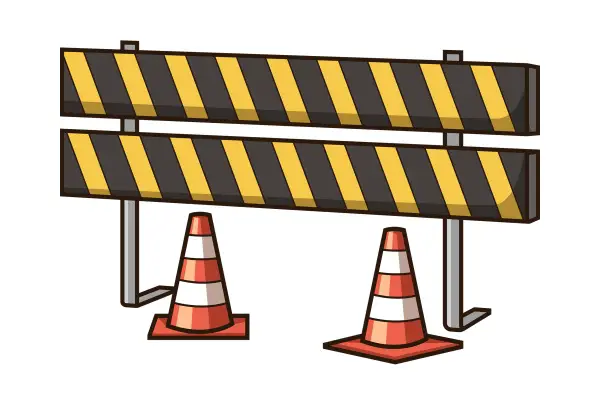It’s becoming quite common to hear about bad mother-daughter relationships. This can’t be what mothers anticipated when finding out they were having a daughter, so how does it happen? What causes some daughters to hate their mothers and what can be done to prevent or correct this?
The root of daughters who hate their mothers stems from temporary rebellion to extremes of disordered relationships, sometimes the fault of the mother. When possible, mothers and fathers should work together to correct signs of hate to prevent escalation and further erosion of the family.
As a mom of a daughter (and sons), I couldn’t imagine feeling like my daughter hates me, but I admit our relationship hasn’t been all hugs and kisses. It’s normal for moms and daughters to butt heads from time to time, but not normal for their relationship to include hate.
In this article, I hope to shed some light on this dynamic using what I’ve learned researching it, 20 years of teaching, as well as from my own experiences as both a mother of a daughter and a daughter with a mother.

Contents
Why do mothers and daughters not get along?
For the most part, the first thing I’ve learned about what makes daughters hate their mothers is that there is no one reason usually. However, mothers and daughters not getting along is generally a first step in that direction.
When mothers and daughters don’t get along, tension festers in the relationship. If not addressed properly, this can result in broken bonds long term. It’s important for mothers as the parent in the relationship to identify reasons they argue and take steps to fix it.
Below I’ve addressed some common reasons that keep daughters and mothers from getting along. To start, I’ve listed overt, surface level points. Then, I’ve listed underlying causes that are more critical to the relationship.
Overt Reasons Moms and Daughters Don’t Get Along
- Different interests- When moms and daughters have different hobbies and interests, they often don’t want to spend time together.
- Personalities that don’t click– Personalities that are either two alike or polar opposites often conflict and struggle to get along.
- Opposing viewpoints on fundamental issues– When people have different opinions about important issues that can be a problem, even with family members. (i.e. religion, politics, etc.)
Underlying Causes Moms and Daughters Don’t Get Along
- Not Understanding Roles– It’s vital that moms and dads set the tone for respecting roles in the family. Problems arise when parent-child roles are reversed, neglected, or ignored.
- Lack of Communication-If moms and daughters don’t communicate consistently and thoughtfully, the relationship is negatively impacted.
- Poor Parenting– In the end, problems in the parent-child relationship often are due to poor or lackluster parenting. Parents are their children’s first teacher and must give 100% effort. They do much more what you do than what you say.
If you don’t have a peaceful home and want help, we have a video course that can help you create this for your family. Click here to see our Peaceful Home Parenting Video Course.
Controlling Mothers Alienate Daughters
To put it bluntly, often the fault for poor mother-daughter relationships lies with the mother. What kind of mothers create relationships that cause daughters who hate them?
Controlling mothers alienate their daughters, especially as daughters enter the tween years and try to exert independence. By holding on too tight and trying to micro-manage daughters, mothers often push them away for good. It’s vital that mothers learn to balance their role and let daughters grow.
A prime example of a controlling mother is from the film and book of the same title: Mommie Dearest. Mommie Dearest: 40th Anniversary Edition (available for free with an Audible Premium trial membership) by Christina Crawford was published in 1978, a year after her mother, Hollywood film star Joan Crawford, died.
In her written memoir, Christina details her life as the adoptive daughter of an alcoholic, abusive mother, not caring if the world had a different view of her icon mother. Though ultimately Christina contested the film version (released in 1981), feeling it didn’t accurately depict the relationship in lieu of extremism, she confirmed the abusive events from the film are true to her book’s tale.
How Moms Can Avoid Controlling Behavior:
- Nurture Your Spousal Relationship– Moms who are in a supportive marriage will be better moms.
- Reflect On Your Intentions– It’s not second guessing decisions to think about your intentions behind them. Make sure your ‘why’ is always about doing what’s best for your daughter.
- Stay In Your Parenting Role– It’s okay to be friendly with your daughter, but not okay to be friends. Your daughter needs you to be her mom.
You might like to read this other article about raising daughters: Dealing With A Disrespectful Daughter: 8, 16, 21 Years Old
Unclear Boundaries Can Set Up Daughters To Hate Mothers
As said before, sometimes the fault of daughters who hate their mothers is actually the mothers. What is it that mothers do that makes this happen, and what can they do to correct it?
Unclear boundaries can set up daughters to hate their mothers. When boundaries are ambiguous and blurred, then daughters end up resenting their parents because they don’t feel cared about. Mothers and fathers must establish and maintain clear boundaries for their children.
Let’s look at how to set clear boundaries for daughters and then, how honoring roles is critical for healthy mother-daughter (and truly, all family) relationships.
Setting Clear Boundaries For Daughters

What does it mean to set boundaries for our daughters? And how can we make sure that boundaries don’t become barriers for the parent-child relationship?
boundary: something that indicates or fixes a limit or extent
Merriam-Webster
A boundary is a dividing line, either imaginary or literal, by definition. For parents, boundaries are figurative dividers of their role from their children’s. Setting clear boundaries of roles and responsibilities ensure a healthy, peaceful home and foster loving relationships.
So how do moms and dads set boundaries for their children? Parents need to maintain the adult responsibilities in their home, hopefully working together to deal with mature issues. For instance, moms should not rely on daughters as confidants or sounding boards and dads shouldn’t rely on daughters to make family decisions.
Signs that boundaries aren’t set in the home:
- Your toddler daughter throws a tantrum and gets her way.
- Moms let tween and teen daughters dress in her clothes.
- Your teen daughter doesn’t have or follow a curfew.
- Your daughter backtalks rather than obeys your parenting decision.
- Your adult daughter asks you for money.
- Your daughter puts you down or calls you disrespectful names.
Moms Who Don’t Stay in their Role Hurt Their Daughters Long-Term
Oftentimes, moms think that by being a friend to their daughter, they are helping their child. This is quite the opposite in fact.
Instead of being loving, the decision of mothers to leave their parenting role unfairly burdens their daughters. Mothers who forfeit their mom role and forsake their responsibilities as a parent cause their daughters to enter a disordered relationship, affecting all relationships in their future.
Daughters in these situations are forced to grow up too soon and lack the guidance they need as children and even later on as they enter adulthood. We have our children for 18 years until adulthood. Our relationship with them change slightly as they get older, but we must always be their rock.
What can families do when parents aren’t honoring their roles?
- First and foremost, mothers and fathers must take charge.
- Parents must acknowledge they’re responsible for the family and for decision-making.
- Both moms and dads must maintain separation between adult and child issues.
- Parents should model respectful behavior (no name-calling or undermining each other).
- Parents should be partners and their children need to know it.
Now to be clear, if parents have been lax in setting boundaries or maintaining them, then starting fresh or anew is going to be explosive and met with defiance from daughters. But stay strong! It may take weeks or even several months, depending upon your particular home, but it will work eventually if you don’t give up. And it will be worth it!
For a different perspective, try this article about sons and mothers: What to Know About Sons Who Hate Their Mothers
Uncommon Causes Affect Good Mother-Daughter Relationships
There can be external causes that lead daughters down the road of disrespect and bad feelings.
Besides unclear roles and boundaries, there are some uncommon causes that affect mother-daughter relationships negatively, too. Mental illness, personality disorders, and toxic people can certainly influence a daughter’s feelings about her mother.
Let’s consider this in more detail.
Mental Illness and Disorders Can Affect Moms and Daughters
It’s possible that what causes a daughter to hate her mother is mental illness or personality disorders, whether it’s from the daughter, mother, or both. Some of these can be lessoned by professional help or medication, but without the cooperation of a daughter that wants to change, it can be a steep, uphill battle.
Some types of mental illness and disorders that can affect relationships:
- Depression
- Anxiety
- Dissociative disorder
- Bipolar disorder
- Schizoid disorder
- Narcissism
- Obsessive Compulsive disorder
According to a 2019 comprehensive study by the National Institute of Health (NIH), parents especially who suffer from mental illness and/or personality disorders need extensive parenting support to cultivate healthy family relationships. As well, they urge the dedication of more research towards this area of severe need.
Further, if you or someone you love show signs of mental illness or personality disorders, please seek help from a medical professional. You can also contact moderated hotlines set up to help such as SAMHSA’s National Helpline: 1-800-662-HELP (4357) for substance abuse and mental health support.
Toxic People Might Undermine Good Mom-Daughter Relationships

In addition to mental illness and/or personality disorders harming mother-daughter relationships, other people may hinder relationships. Sometimes these people are referred to as ‘toxic.’
“A toxic person is anyone whose behavior adds negativity and upset to your life. Many times, people who are toxic are dealing with their own stresses and traumas.”
WebMD
It could be a husband, grandma, or a daughter’s boyfriend that interferes with a mother’s role in her daughter’s life. The first step is identifying the culprit; then, addressing the problem (or person) appropriately.
How to deal with toxic people:
- Unsupportive Husband– If your spouse isn’t a helpful partner, you need to talk with him calmly and share your concerns. Often it’s something that’s happened gradually overtime. By bringing it out in the open, together you can deal with the disordered partnership and make corrections.
- Undermining Grandparents– Sometimes grandparents undermine parenting roles in the quest for grandchildren’s love and attention and the need to not be ‘the bad guy.’ Talk to the grandparents clearly and respectfully about your roles and set boundaries for them, too.
- Interfering Boyfriends/Friends-If friends cause your daughter to act disrespectfully and cross boundaries, you need to discontinue the negative influence. This may even mean to baring your daughter from them altogether.
Believe me, homeschooling cured all the problems we were encountering with our children each and every time they appeared. Our kids got huge scholarships to college and frequently are the most character filled people in the room they are in.
You can choose this and many other options. You are the parent and your kids are your most important responsibility.
Daughters With Mommy Issues Have Problems As Adults
It’s true that daughters with ‘mommy issues’ often suffer from bad adult relationships later on. Because parents are children’s first teachers, moms with bad relationships with their daughters inadvertently teach them ways to maintain negative relationships. So what is to be done about daughters with mommy issues?
Daughters with mommy issues have negative feelings about their mothers. Sometimes this is because daughters feel competitive with their moms. It may also stem from feeling insecure regarding parental love. It’s necessary to resolve these feelings for daughters to have healthy adult relationships.
Sometimes Parents Can Be At Fault
Daughters with ‘mommy issues’ need to know their mothers love them and care about them. Mothers and fathers should reassure their daughters, often by cementing clear boundaries and roles (once again, proving how critical these are to the family’s well-being).
Remember children are more likely to do what you do, rather than what you say.
Instead of passing on unhealthy patterns and habits, parents should strive to pass on positive behaviors and practices.
Sometimes A Daughter Can Have Attitude and Pride Issues
Many times daughters will go through temporary (though sometimes years long) rebellious periods when they consider themselves better, smarter, or more capable than their mothers. A mother’s role should never be disrespected or discounted, but at times character issues can cause a daughter to do just that.
Mothers need to demand respect in these situations and be ready with small, incremental consequences if disrespect rears its head. These must also be followed through with at all costs.
After a daughter disrespects her parents a few times and is met with immediate consequences, these instances will be come less and less frequent. It will take some effort in the beginning, but future you will greatly appreciate it.
To see more about how we have used and taught family discipline, check out our Peaceful Home Parenting Video Course.
For related articles about daughters, I recommend reading these:
- My Daughter Is An Idiot, and Other Things You Shouldn’t Say
- Why Dads Ask ‘What Are Your Intentions With My Daughter?’
- What Age Should I Let My Daughter Date? (It’s Surprising)
The Takeaway for Daughters Who Hate Their Mothers
To sum it all up, daughters who hate their mothers are often products of homes with unclear roles and boundaries. To fix this, parents need to work together. And if problems have existed long term, it won’t be easy to make adjustments.
It is also necessary to manage relationships with friends outside the family in order to protect the home environment. Our daughters can also be negatively affected by social media, music, and entertainment. Regulate these now and later you will reap the rewards.
For the prize of healing broken families, it’s well worth the effort!
For further reading, I suggest: When Parents Say- I Love My Daughter, but I Don’t Like Her
